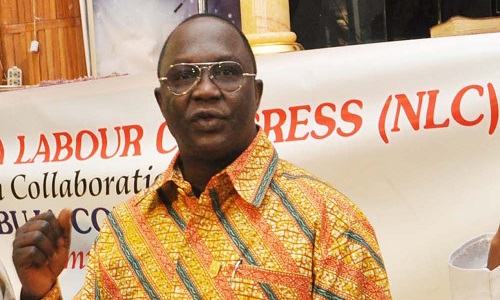645
The Nigeria Labour Congress (NLC), the Central Bank of Nigeria (CBN) and the Body of Banks Chief Executive Officers in the country have opposed the provisions of the bill asking banking employees and other financial institutions to declare their assets and stop them from owning foreign bank accounts.
The position of the three bodies however fall contrary to that of the Economic and Financial Crimes Commission (EFCC) who insisted that bank emloyees should be made to declare both their assets and that of their spouse and children.
However, the Code of Conduct Bureau, the EFCC and the Centrl Bank wants to be saddled with the responsibility of presiding over the asset declaration by employees of financial institution.
Making their presentations at a public hearing on a bil foray Act tomamend the bank Employees Act 2004, the CBN said the provision of the proposed law will discourage Nigerians in the diaspora and Foreigners from investing in the country, while the NLC said workers in the banks should not be the ones declaring assets because they are not pubic sector workers.
The committee of Bank Chief Executives on their part said bank employees should not be compelled to declare the assets of their spouse as they may not be aware of such assets and should not be made to lie on oath.
They also said that the employees of the banks should not be confer with the title they do not deserve as only six categories of public servants were prevented by law from wing foreign bank accounts.
Chief of Staff to Chairman of the Economic and Financial Crimes Commission, who represented the commission, Hadiza Gamawa Zubairu supports the provisions of the bill requiring employees of financial institutions to declare the assets of the spouse and children.
She said “In relation to the properties of the spouses of financial institutions and designated non-financial institutions’ employees, the EFCC supports that position because, looking at the issues at hand, when you are dealing with money laundering, each and everybody becomes a part and parcel of that – the individual, the spouse, the children and the associates are all part of it.
“And looking at what is obtainable in the public sector where we are declare our assets to the Code of Conduct Bureau, we are equally required to declare the assets of our spouses and children as well. So, we feel that this should remain as it is.”
The Commission however said the law should make it the appropriate authority to receive such declaration.
Leagal Adviser to Union Bank and leader of the legal team from Committee of Bank CEOs, Sesan Sobowale said they were opposed to the provisions that compel Bank employees to declare the spouse and children under the age of 18.
He said “our view is that the amendment should restricted to bank employees alone as it may not be feasible for one to know his or her spouse’s assets for various reasons. He or she may not even know that the spouse has acquire an asset.
“We are also aware that spouses can have investment that are not known to their better half and since these declarations are going to be made on oath, it means that it is be made at the risk of criminal sanction.
“We acknowledge the rationle for this provisions whch is that it is possible that bank employees may transfer assets to their spouses. But there is already a provision in the principal act which confer power on the appropriate authority to investigate the asstes of such spouse, parents and associates.
“In view of this, the new provision may not be necessary afterall because existing provision allow for the investigation of assets of those spouses.”
Speaking on ownership of foreign accounts, he said “We do not beleive that this amendment should be made. First, in the Nigerian banking industry today, we have banks that are doing business across Africa, in Europe and in Asia and these are not representative offices or branches.



